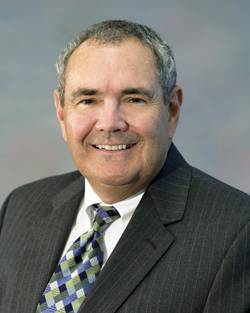WCI: Abandon Obama's User Fee Proposal
Capital Development Plan Most Comprehensive Solution for Addressing Waterways’ Infrastructure Funding, Construction Reform Needs.
In a letter sent yesterday to Representative Jeb Hensarling and Senator Patty Murray, Co-Chairs of the Joint Select Committee on Deficit Reduction, Waterways Council Inc. (WCI) President and CEO Michael J. Toohey urged the “Super Committee” to nix the user fee provision in the Inland Waterways Capital Investment Act (IWCIA). The Obama Administration included a user fee in its proposal that was sent to the Joint Committee as part of “The President’s Plan for Economic Growth and Deficit Reduction.” “The Administration’s IWCIA proposal will neither create economic growth nor meaningfully contribute to deficit reduction and should be rejected by the Joint Committee,” the WCI letter said.
“The Administration’s proposal wrongly suggests that a sub-cabinet official in the Executive Branch be delegated Congress’ authority to establish and collect a tax --- in the form of a user fee --- that will increase costs for American consumers and make domestic commercial shipments less competitive in the international marketplace. The proposal was developed entirely without the participation of the commercial users of the inland waterway system who would be most directly affected by the proposal,” the letter stated.
The Administration’s proposal fails to include much needed Corps of Engineers’ project delivery improvement reforms that are necessary to prevent future cost-escalation and delayed project completion results at lock and dam modernization projects currently under construction. Two glaring examples of project delivery failure are the Olmsted Lock and Dam project on the Ohio River and the Lower Mon project on the Monongahela River. The Olmsted Lock and Dam project cost of $2.1 billion is already $1.3 billion over budget and another “significant” cost over-run has been identified by the Corps but not yet been made available to industry.
In place of the user fee provision, the WCI letter underscores the Inland Marine Transportation System (IMTS) Capital Projects Business Model or Capital Development Plan as the way forward that “would apply objective criteria to the prioritization of essential construction and major rehabilitation projects, revise current beneficiaries’ cost sharing for these projects, reform the Corps of Engineers internal project delivery process, and suggest a revenue enhancement – a thirty to forty-five percent increase in the existing diesel fuel tax – to pay for these vital infrastructure investments,” it said.














